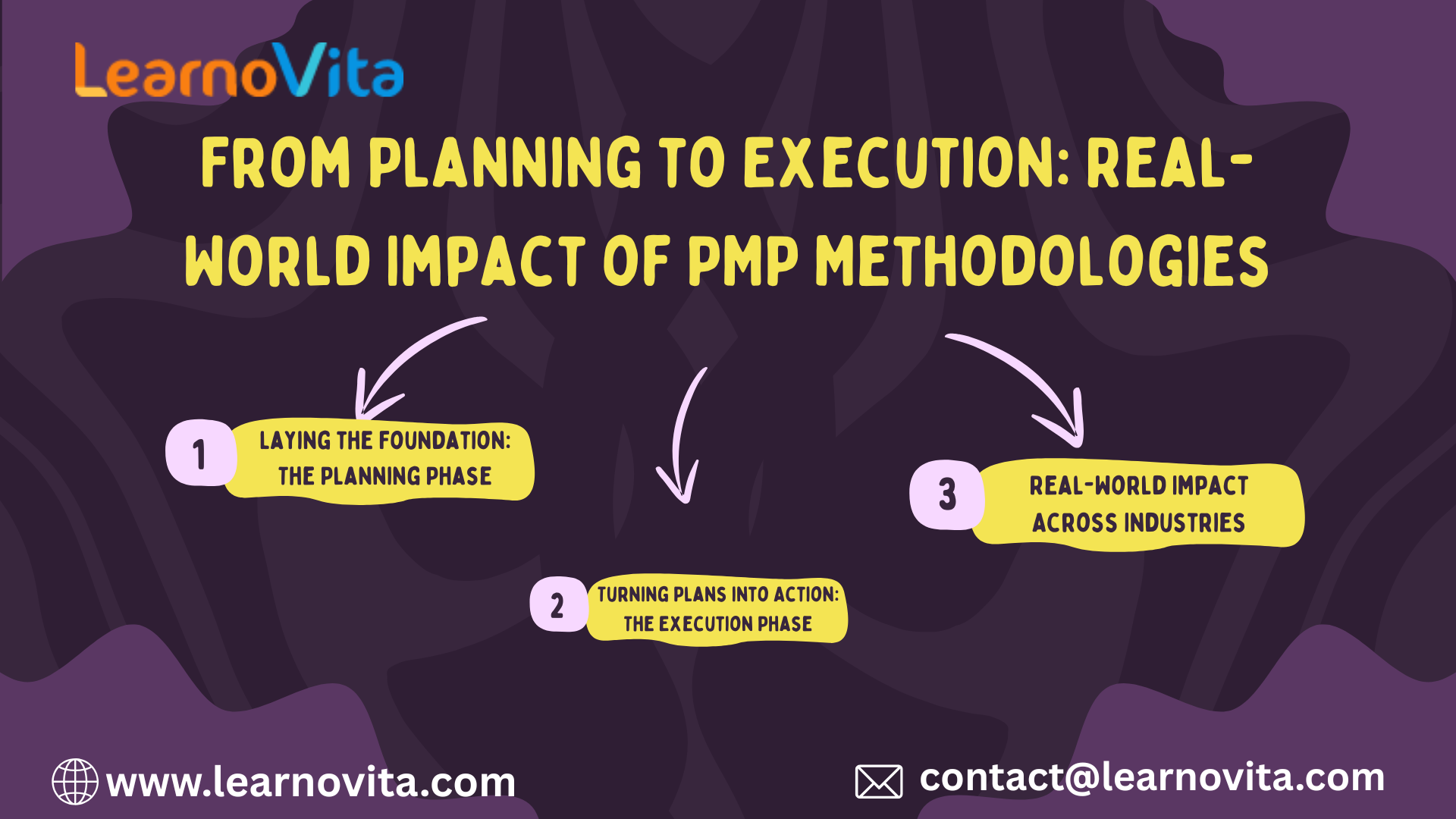Bridging Vision and Delivery: How PMP Shapes Real Project Outcomes

In today’s fast-paced and competitive business world, the difference between success and failure often comes down to how effectively projects are managed. The Project Management Professional (PMP) methodology, developed by the Project Management Institute (PMI), provides a globally recognized framework that helps organizations turn strategy into results. By combining structure, discipline, and adaptability, PMP Course in Bangalore methodologies ensure that every project moves smoothly from planning to execution delivering measurable value every step of the way.
1. Laying the Groundwork: The Power of Planning
Every successful project begins with strong planning. PMP methodologies emphasize defining clear objectives, identifying risks, setting realistic timelines, and allocating resources efficiently. Using tools such as the Work Breakdown Structure (WBS), stakeholder mapping, and risk management plans, project managers create a roadmap that provides structure and direction. This phase is all about clarity and alignment. It ensures that everyone involved from executives to team members understands the project’s scope, goals, and success criteria. By focusing on thorough preparation, PMP reduces uncertainty, prevents miscommunication, and builds a foundation for smooth execution.
2. Turning Plans into Action: Excellence in Execution
The execution phase is where strategy takes shape and results begin to materialize. PMP methodologies provide a structured approach to managing workflows, monitoring progress, and maintaining communication across teams. Project managers use metrics, dashboards, and regular reporting to ensure that the project remains on track with its original goals. Flexibility is also key. PMP principles encourage adaptability, allowing teams to adjust plans when challenges arise without compromising on quality or timelines. This balance of control and agility ensures that projects are delivered efficiently, even in complex or changing environments.

3. The Real-World Impact of PMP Methodologies
Across industries, PMP Online Training methodologies have proven their effectiveness time and again. In technology, they streamline product development and improve coordination across departments. In construction, they help control costs and enhance safety compliance. In healthcare, finance, and education, PMP principles promote organization, accountability, and transparency leading to more successful outcomes and satisfied stakeholders. Organizations that adopt PMP frameworks often report improved project success rates, better communication, and higher productivity. PMP-certified professionals bring leadership, structure, and problem-solving skills that ensure projects are completed efficiently and strategically aligned with business goals.
Conclusion
From meticulous planning to focused execution, PMP methodologies offer a reliable framework for achieving project excellence. They help organizations stay organized, adaptable, and results-oriented in a world where every project counts. By adopting PMP best practices, businesses can bridge the gap between ideas and outcomes turning strategic goals into measurable success.
- Questions and Answers
- Opinion
- Motivational and Inspiring Story
- Technology
- Live and Let live
- Focus
- Geopolitics
- Military-Arms/Equipment
- Ασφάλεια
- Economy
- Beasts of Nations
- Machine Tools-The “Mother Industry”
- Art
- Causes
- Crafts
- Dance
- Drinks
- Film/Movie
- Fitness
- Food
- Παιχνίδια
- Gardening
- Health
- Κεντρική Σελίδα
- Literature
- Music
- Networking
- άλλο
- Party
- Religion
- Shopping
- Sports
- Theater
- Health and Wellness
- News
- Culture

